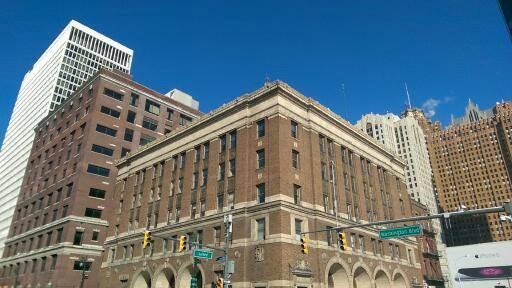
For over 80 years, the Ford Foundation has invested in people and ideas, including within the city where Henry Ford’s ideas transformed the automobile industry. When first established over 80 years ago, the foundation worked largely out of Detroit and Dearborn, and played a large part in contributing to the Motor City’s economic and cultural legacy.
The foundation moved to New York in 1953, but while it maintained close ties to its home, it was easy to question whether there was much of a connection between Ford Motor Co. and the philanthropy that launched as a result of the company’s rapid success. Furthermore, as one looks back, the foundation’s move east was a signal of Detroit’s slow decline. By many accounts, Detroit was the richest U.S. city in 1950, but its economic might had peaked.
The rest, as they say, is history, as Detroit became the poster child of the Rust Belt’s struggles and later, the continued loss of manufacturing jobs to offshoring and automation. While urbanization surges across the U.S., Detroit is still losing population. Through the struggles and crises, the foundation claimed it still maintained close ties to Detroit, and has supported programs to the tune of hundreds of millions of dollars – and filling much needed gap’s as the city’s civic leadership was often unwilling or unable to find a way to turn around the city’s cratering fortune.
Now, according to several news accounts, the foundation is returning to the city. Crain’s reported last week that a Detroit office will open in order to manage Detroit-based programs, including an affordable housing initiative, locally instead of remotely. In total, the foundation operates various Detroit-based initiatives with a total budget of approximately $15 million, the most of any U.S. city in which its programs operate.
Detroit still faces a long uphill climb in its quest to regain just a sliver of the economic momentum that showered it during much of the twentieth century. But the evidence suggests that the city has finally bottomed out – with its bankruptcy symbolizing the city’s hard fall and fitful recovery. The proximity of several top universities, a sturdy manufacturing base, its bountiful cultural options and relatively low cost of living makes the city an attractive prospect. JPMorgan Chase is one organization that has invested tens of millions of dollars in various social enterprise programs, a risk the bank says has been largely successful. Urban farms and tech startups are among the various new ventures that show promise as this city of 680,000 tries to punch its ticket to revitalization.
But for Detroit to rebound, the entire city needs a lift. Much of the effort has been centered on downtown and the Woodward Corridor. Yes, the Detroit Pistons will be back downtown, and even Michigan’s Albanian-Americans are contributing to good times in Motor City again. But there is more to Detroit than the stretch of town from the waterfront to I-94.
Many neighborhoods in Detroit have been left out of Detroit’s rebirth. Could having the brainpower of the Ford Foundation help? There is hope, as after all, the foundation itself is recalibrating how it operates. Earlier this year, its executives made the surprise announcement that $1 billion, or $1 in $12 of its endowment, was diverted into a fund that seeks to accelerate mission-related investing over the next decade. The foundation believes impact investing is the way forward; such a paradigm shift could benefit Detroit in the near future as well.
Image credit: Leon Kaye

Leon Kaye has written for 3p since 2010 and become executive editor in 2018. His previous work includes writing for the Guardian as well as other online and print publications. In addition, he's worked in sales executive roles within technology and financial research companies, as well as for a public relations firm, for which he consulted with one of the globe’s leading sustainability initiatives. Currently living in Central California, he’s traveled to 70-plus countries and has lived and worked in South Korea, the United Arab Emirates and Uruguay.
Leon’s an alum of Fresno State, the University of Maryland, Baltimore County and the University of Southern California's Marshall Business School. He enjoys traveling abroad as well as exploring California’s Central Coast and the Sierra Nevadas.














